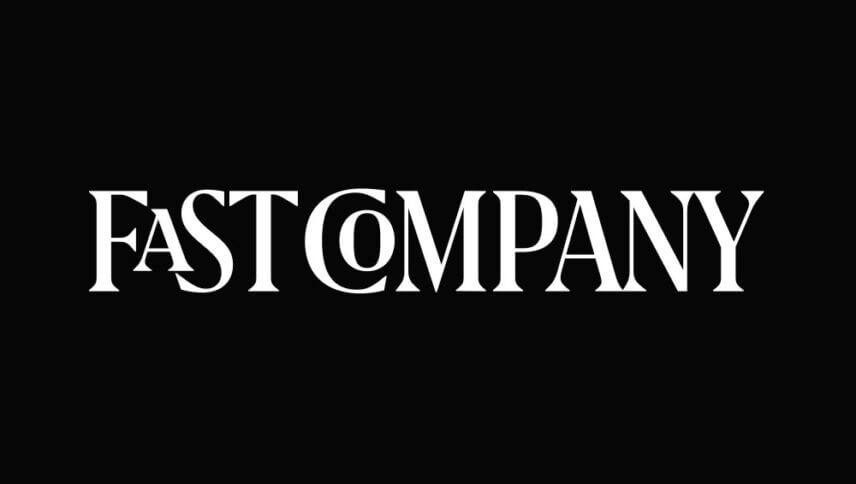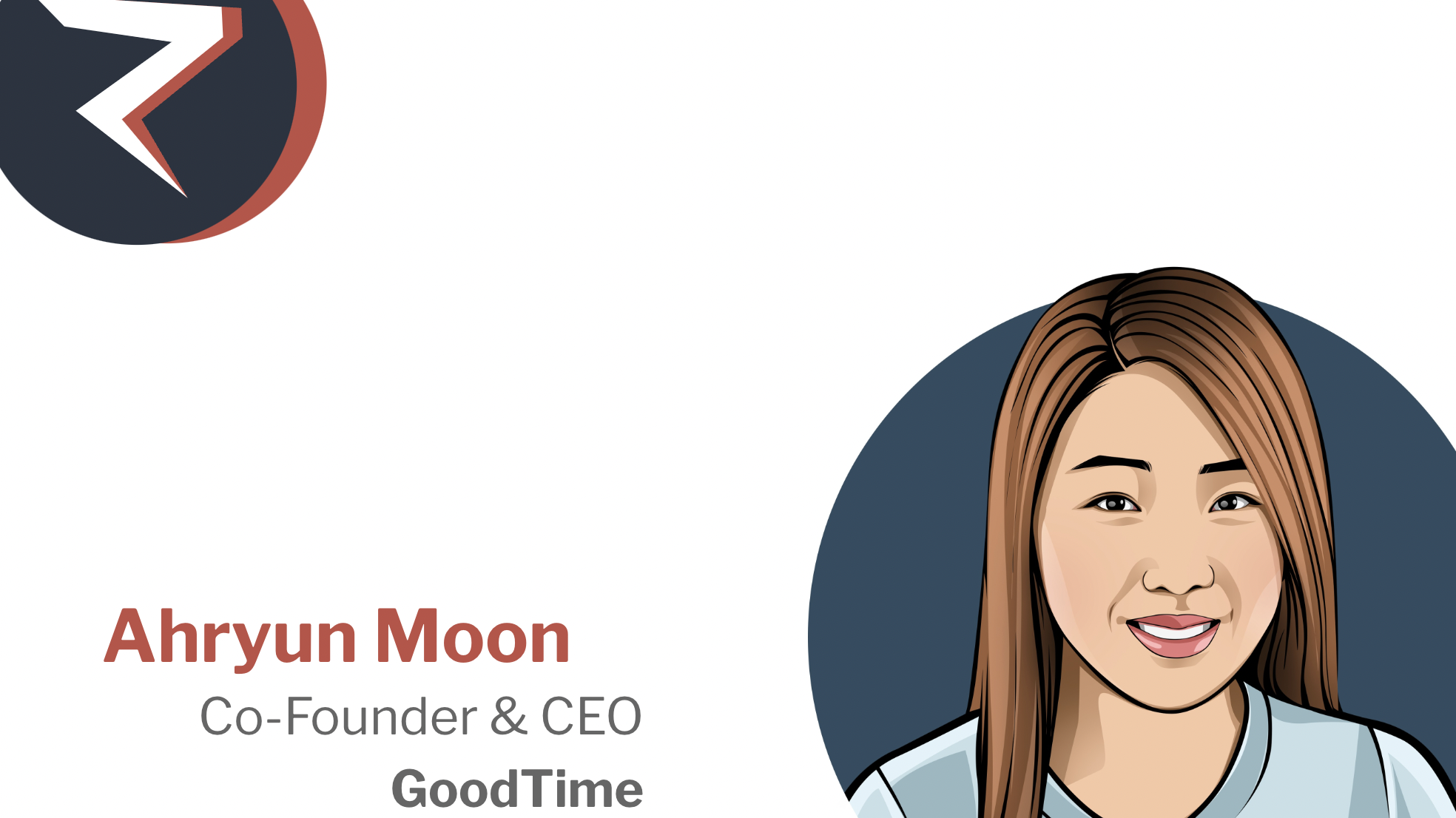
By Kyle Lagunas, Aptitude Research
The original article is posted here.
On this episode of Transformation Realness, I’m hanging out with Ahryun Moon, CEO and Co-Founder, and Jasper Sone, Co-Founder and CPO, of GoodTime—a Workday partner that’s redefining how we think about interviews. Let’s face it: interviews are the most dreaded part of the interview process and often painful for everyone involved. But GoodTime is here to bring order to the chaos with smarter tools that streamline scheduling, empower interviewers, and improve the experience for everyone.
We get into how GoodTime orchestrates interviews from every angle, how an interviewer’s preparedness can make or break employee experience, and how agentic AI is creating a smarter, more connected talent ecosystem.
In this episode, Ahryun Moon and Jasper Sone remind us that interviews aren’t just a box to check—they’re where hiring success begins. From empowering interviewers to building smarter AI ecosystems, find out how GoodTime is helping HR teams step into the future of hiring with confidence.
Bringing Order to the Chaos
The interview process is messy. It’s chaotic. It’s the Wild West of talent acquisition, and it’s been screaming for a glow-up for years. Enter GoodTime. They’re not just smoothing out a few rough edges—they’re flipping the whole script. “GoodTime is an AI platform that orchestrates the entire experience for everyone—all stakeholders in the hiring process. So not just candidates, but also interviewers, TA teams, as well as hiring managers,” Ahryun explains.
GoodTime isn’t just about scheduling (though they nail that too). With tools like candidate and interviewer portals and training modules, they’re bringing intelligence to every step of the process. And they’ve cracked the code on turning raw data into actionable guidance. “We are providing in-depth insights and data in that interview process so that our customers can shorten time-to-hire, be more efficient, and actually do more with less,” Ahryun says.
This isn’t just an upgrade. It’s a full-blown transformation of how interviews happen. GoodTime is helping HR teams take control and make candidate interviews less of a headache and more of a strategic advantage.
Prepping Interviewers for Success
I’m going to let you in on one of the worst kept secrets… most interviewers are winging it. They’re running from back-to-back meetings, glancing at a resume at the last second and hoping for the best. It’s not their fault—interviewers are often overlooked when it comes to talent acquisition tools. But GoodTime is flipping the narrative by focusing on a group that’s critical to the hiring process.
“As an interviewer, imagine if you’re going into this interview and you feel underprepared. It’s kind of like this sense that you should have studied for the test, but you haven’t,” Jasper says. And the consequences of that? A poor candidate experience and wasted time. “Candidates are not stupid. They know that they’re underprepped. So then it really botches candidate experience,” Ahryun adds.
GoodTime’s interviewer portal gives even the busiest hiring managers the tools to get prepped in five minutes flat. Pair that with automatic prep time built into schedules, and you’ve got a recipe for interviews that are actually productive.
Building a Smarter Ecosystem
Here’s where it gets futuristic (in the good way): GoodTime’s partnership with Workday, leveraging Workday’s AI, Illuminate, is helping create a new kind of HR tech ecosystem. The GoodTime team is optimistic for a future powered by agentic AI. What’s agentic AI? Think of it as AI agents—each specialized in tasks like scheduling, sourcing or internal mobility—working together and talking to each other to deliver smarter, more connected outcomes.
“The opportunity that was really interesting about Illuminate and the ecosystem that they’re building is now we actually have a place for these agents to actually start interacting together,” Jasper says. “There’s a high likelihood that if you build an agent here, you’ll be able to make sure that it and others have access to it at scale.”
For GoodTime, this means evolving into the ultimate scheduling agent. “We would like to become the ultimate scheduling agent that can engage with natural language and then be able to schedule even the most complex interview,” Ahryun says. Imagine being able to coordinate multi-round interviews for executives and high-volume retail hires alike, all without breaking a sweat.
The future isn’t just better tools in your tech stack, it’s creating an ecosystem where yout HR tech works together seamlessly to scale impact. And really, now that we’re seeing that possiblity, why would we ever settle for for less?
People in This Episode
Transcript
Kyle Lagunas:
Hello, my little blueberries. Welcome back to Transformation Realness, the only show all about people who are doing their best to make the world of work less shitty and have the guts to share their story: the good, the bad and most of all, the real. This podcast is produced in partnership with Rep Cap and hosted by yours truly, your fearless navigator, Kyle Lagunas, Head of Strategy and Principal Analyst at Aptitude Research, the leading boutique research firm covering HR tech and transformation. Get into it.
For today’s episode, we are back on Workday’s Forever Forward Bus, and we’re diving into a game-changing conversation about rethinking the interview process from every angle. Interviews. The ultimate Wild West of talent acquisition. You know it. I know it. And my guests today, Ahryun Moon, CEO of GoodTime, and Jasper Sone, their product mastermind, they definitely know it too.
We’re talking about how this power couple in their platform are tackling one of the messiest parts of hiring: interviews. From seamless scheduling to empowering interviewers and candidates alike, GoodTime is putting intelligence into every touch point of the process. And with Workday’s partner ecosystem backing them, the stakes and the opportunities have never been higher. It’s another installment of Built on Workday: The Birth of the New HR Tech Ecosystem.
Let’s get real about how to do more with less, deliver better experiences, and make hiring smarter, not harder.
Hello, my little blueberries. Welcome back to Transformation Realness, coming to you live from the back of a bus at HR Tech. The back of the bus is the coolest place to be, of course. There is a podcasting studio in Workday’s bus. It’s so sick. It is really fun. And I am joined today by two of my new friends at GoodTime, Ahryun, Jasper. Do you guys want to say hi?
Ahryun Moon:
Yeah, definitely. I’m Ahryun, one of the co-founders and CEO of GoodTime.
Jasper Sone:
Nice to meet you. My name’s Jasper. I’m one of the co-founders of GoodTime, and I work on the product.
Kyle Lagunas:
So here this week we are talking about this major push from Workday to expand their partner ecosystem. Look, I’ve been an industry analyst for about 15 years. I used to be very young, and now I’m not as young as I was, but.
Ahryun Moon:
You look young.
Kyle Lagunas:
Thank you. Thank you. I still haven’t done any Botox yet. Gotta get that skincare going. But look, I’ve covered the space for a really long time, and I’ve seen different types of partner programs. I’ve seen a lot especially in the major HCM space. These companies like to build it themselves. They like to maintain that walled garden. And I think that with as much disruption as we’ve been through in the last couple of cycles, that the game has to change.
I’m really excited this week to be able to sit down with some of these new partners that Workday is engaging with and celebrate some of this partnership, the outcomes that are coming from it. I’m really hoping that people aren’t thinking I’m just here stanning for Workday, although I’m happy with this. I want to see others in the space take this and run with it as well.
But yeah, so that’s my setup. That’s what we’re here to talk about. Tell me about what’s going on with GoodTime and Workday as part of this. Maybe for those who don’t know, you all can tell me a little bit about who GoodTime is, what you guys do.
Ahryun Moon:
Yeah, definitely. So GoodTime is an AI platform that orchestrates the entire experience for everyone, all stakeholders in the hiring process. So not just candidates, but also interviewers, TA team, as well as hiring managers. Our core is being able to schedule extremely complex interviews for corporate roles, but also using the same technology, we now schedule high volume retail roles as well.
So the scheduling and then the brain and engine behind that is really our core. But on top of that, we’ve also built out what we call the experience layer. So we have something called candidate portal, interviewer portal, interviewer training, all those to really prep the people who will be in the interviews to put their best foot forward. And on top of that, we have an intelligence layer.
So typically what we found is the process of interview is where data is severely lacking. So we are actually providing very in-depth insights and data in that interview process so that our customers can actually shorten the time to hire, be more efficient, and actually do more with less, but with data-driven decision-making.
Kyle Lagunas:
Yeah, I love it. I mean, honestly, the interview process is kind of the Wild West in talent acquisition. It’s an area that continues to just need so much support. I feel like it’s interesting how many people that interview that aren’t trained to interview. And the hiring organization really has no insight into what people talk about and how it goes. Interviewers themselves don’t know really how they should effectively run these things, right?
Ahryun Moon:
Totally, yeah. Actually, Jasper can talk more about our experience.
Kyle Lagunas:
These stakeholders need support, and a lot of these tools we build are just for the recruiting sake. You guys are engaging other stakeholders, right?
Jasper Sone:
Absolutely. I think one of the things that from the flip side of that, as an interviewer, imagine if you’re going into this interview and you feel underprepared. It’s kind of like this sense that you should have studied for the test, but you haven’t. And oftentimes this is not their only job. This is part of the many different facets of their job. And so really understanding for us that it wasn’t just the administrative components of setting up the interview to make them successful.
It’s actually all of the actors that are around the interview itself. That was the key moment for us as we started building out more and more of these products around interviewing. As much as companies have done amazing jobs to enhance their overall candidate experience, you can’t help but wonder how much of the experience is actually determined inside of the interview.
Kyle Lagunas:
100%. 100%. It’s not even just that so many of these interviewers are… I love that notion of I didn’t study for this test, but the reason I feel like that happens, meeting culture is out of control these days. And so somebody that’s interviewing in Canada, I’m running from one meeting that ended right before this was scheduled to start, and hopefully we wrap up on time.
And then I also have another meeting immediately after this. And so for the talent acquisition organization, we need to enable that interview experience. It’s not just automating the interview scheduling process. There is a lot of efficiency to be gained there, but we need more impact than just that.
Ahryun Moon:
Oh yeah, absolutely. So actually that’s why I think the scheduling aspect and as well as experience really go hand in hand. So things like, hey, let’s always make sure that there’s 10 minute buffer before the previous interview. We can actually programmatically set that up within GoodTime, so it just happens. And then the experience portion, the interviewer portal, what it does is it actually helps interviewers prep within five minutes.
And that’s literally what they do, or they go into the interview and they’re reading resume, looking up LinkedIn. Candidates are not stupid. They know that they’re underprepped. So then it really botches candidate experience. So really I think those components really go hand in hand. That’s why we built out the platform that way.
Kyle Lagunas:
I mean, honestly, I feel like we have accelerated some of the innovation in this space. We’re realizing that we can support more of this experience. It’s really cool to see how much product you guys have built. I feel you have built a lot really recently. Are you getting any sleep, Jasper?
Jasper Sone:
Fortunately, yes, but the innovation I think comes with changing technology availability, but also customer support as well too, because a lot of the needs come directly from our customers. And so it’s amazing over the last probably three or four years, so many things have changed in our lives and these changes come with new problems, new solutions that need to match those problems.
And so we’ve been very fortunate to be at the crux of that. And it’s amazing to see companies like Workday as well to take advantage of this opportunity. That’s really huge in building out an ecosystem for all these players to actually start interacting together.
Kyle Lagunas:
I mean, that’s the perfect segue. Because like I said, historically, these major players have tried to build it all. If you had a shared customer with them, they would, yeah, here are API’s, but I’m not going to have a bidirectional with you. And for something like jumping in and enhancing the interview experience and it doesn’t have bidirectional integration with my ATS, none of this is connected. I just can push some stuff towards them. I don’t know. I feel like that is a broken experience.
It limits the amount of value that you all can bring as solution providers to the problems you’re trying to solve. So it’s cool to see Workday being like, all right, actually we’re never going to build what GoodTime has. And we do see that our customers want some of these capabilities. So yeah, let’s be partners. Let’s talk a little bit about how have you seen your experience as Workday partners, how has it made an impact on the Workday customers that you have?
Ahryun Moon:
Definitely. We actually have been Workday partner for a while now, about five years.
Kyle Lagunas:
Oh, cool!
Ahryun Moon:
Our first Workday customer is a very popular social network. And since then, in the last five years, just frankly, they’ve been a really amazing partner and also they have really good API, so we can actually have bidirectional sync and everything, but not a whole lot of proactivity in terms of partnership.
But in the recent one year, I think things completely changed. They’re a lot more engaging. We are engaging with them more. We are brainstorming together also on what we can do to actually bring more results to our customers, mutual customers. At the end of the day, I think we want to bring that result to our customers and make them more successful.
Kyle Lagunas:
I mean, that’s the name of the game, isn’t it? Look, it’s been a rough couple of cycles as solution providers in this space. It’s also been rough for the practitioners. But I have been saying consistently, the company, the vendors that are being customer obsessed, the ones that are prioritizing the customer’s needs over any other political environment or co-opetition or whatever, they’re winning, right?
So they’re starting to lean in and collaborate with you. Jasper, how’s that going for you? Because you have the product organization under you, right? Yeah. So what’s that like? Are you nerding out with these people? Are you coming with a bunch of ideas and they’re like, “Yeah, go ahead.” Just talk to me about that collaboration on that side.
Jasper Sone:
Yeah. I think what’s really amazing about the opportunity is just simply just the platform itself. And then in conversations, essentially you can really understand whenever you work with these businesses that care about their customers, you have an immediate opportunity to click with them. So I think any product discussion that you have, it makes sense. And you can clearly draw lines and say, “Hey, we’ve been trying to solve this problem, but this is not our wheelhouse. How can we help?”
Kyle Lagunas:
They’re being open about that, which I also love.
Ahryun Moon:
Actually, yeah, we had a really nice meeting with Workday and they said, “We’re not building GoodTime. We are not investing into building something like GoodTime. We actually would love for partners like GoodTime to actually help our customers.” So they’re very open about it, which we love.
Kyle Lagunas:
Have you guys had an opportunity to look at I think that they productized the name of their AI strategy now, which is Illuminate? Yeah, yeah, because I’m thinking about Agentic AI, which I wasn’t even talking about 18 months ago, but this is a real thing all of a sudden. How are you looking at your product roadmap and thinking about, all right, now I know what I can build into Workday? You probably have, I don’t know, a new toolkit to play around with.
Jasper Sone:
I feel like one of the things that was really amazing about the AI space is I remember talking to my AI professor in college and he basically said, “Where we’re at today wouldn’t be around for another 50 or 60 years.” And this is a very educated individual in this space, but that’s how humans are very… It’s very hard for us to understand exponential growth. And so it’s happened really quickly.
But one of the problems that wasn’t solved was you have all of these cool technologies swirling around and businesses taking advantage of them, but where do they all come together? For us, I think the opportunity that was really interesting about the Illuminate and the ecosystem that they’re building is now we actually have a place for these agents to actually start interacting together that there’s a high likelihood that if you build an agent here, you’ll be able to make sure that it has access and others have access to it at scale essentially that’s necessary.
Kyle Lagunas:
A huge part of scale and adoption is also trust as well. I was talking to somebody else here at the show and even the larger players in our space, not like the Workdays and Oracles of the world, but even an established player like GoodTime, the IT teams at these enterprise companies are still going to think of you as “some random startup.” So why would I give them access to this or that? Why would I integrate more deeply with this?
You guys are getting involved in having access to their most sensitive systems, which is their scheduling, their email. That’s a really sensitive space. I have to imagine that now having… Not just now, like you said, five years, but having that partnership with Workday, they’ve said, “Hey, not only do these people have a product that we think is valuable, we also trust them. We have vetted them. You can trust them too. They’re our partner. They can be trusted as your partner as well.” Are you finding that ethos in your customer engagements with Workday?
Ahryun Moon:
That’s actually a really good point, and I think that’s an amazing validation that our customers will absolutely trust. When we were at Workday Rising last week, a lot of customers actually came by and said, “Hey, we want to actually turn on this AI feature,” whether it be within Workday or within GoodTime.
And they’re like, “I actually need to get some soundbite so that I can actually have a logical conversation with my security team.” I think everyone is really at the forefront in trying to utilize AI, but at the same time, IT and security. It’s a brand new horizon for them. But yeah, I think having that partnership with Workday and Workday validating our [product] as a very safe vendor means a lot to our customer.
Kyle Lagunas:
It definitely does. Because look, the exponential growth that we have seen in innovation — by the way, we’re 18 months into widely adopted GenAI — HR teams can’t keep up with this. Because not only are they I think they’re struggling with some literacy around AI, they don’t really know how these things work, the increased scrutiny that’s coming from these security and compliance teams, HR and talent acquisition is struggling to overcome because they’re struggling to inform and respond to these questions.
And so it slows down their own innovation agenda because it’s like, I don’t know how this AI agent works. I just know that it is going to deliver value for me. That struggle to overcome those objections, I think, stalls us, which is why I’m excited then to see this is a really good time for Workday to open up this partnership so that their customers can find the right partner for the problem that’s in front of them, find the right solution and move quickly, more relatively quickly.
I mean, I study adoption trends and we saw a huge pause in AI enabled HR initiatives over the last year because this increased scrutiny from these AI councils.
Ahryun Moon:
We actually have met even some people from government, and you know how governments are, slower.
Kyle Lagunas:
Oh God, yeah. FedRAMP.
Ahryun Moon:
But even they were saying, “Hey, with AI, it’s not a matter of a few years of adoption. We need it now. Within a few months we need it.” So I think everyone understands the urgency of it. I think we just have to… Probably it’ll take a few months for everyone to be on the same page. And then if you want completely 100% security, you don’t use any SaaS. No Workday. No GoodTime. No nothing. Right?
You work in your own silo. But it’s all about calculated risks and also working with vendors that actually do care about the security of the data. And I think that at GoodTime, for example, we care deeply about it. We make sure that our engineering team has a very good stance on it, and also make sure that we do not process any PII through the AI and so on. So as long as you calculate the risks and know that the ROI is there, then I think the industry will come.
Kyle Lagunas:
I mean, I also just see alignment between your all’s philosophy and your own self-regulation for AI as well as Workday’s. I really love the advisory board that you all have built, the Human-Centric Advisory Board for… Human-Centric AI Advisory Council. I’m really excited to be working with you guys to take that and build a new coalition. What does human-centric AI mean for you guys? And I want to share with people about this coalition we’re going to do.
Ahryun Moon:
Yeah, absolutely. I think a lot of people, especially in HR and TA, are very afraid that AI will take their jobs and be replacing humans. And the process of HR and TA are just innately human. We are hiring humans. So what we believe in is using AI to really augment humans, not to necessarily replace and just make the entire process very robotic and process candidates like we are doing paper pushing.
We do not believe in that. We do believe in elevating experience using AI, elevating efficiency using AI, and also augmenting people so they can make better decisions with data. So that’s what HCAI is all about. And there are actually quite a lot of HR leaders in the industry that really believe in that.
Kyle Lagunas:
Oh, you guys have a sick crew of people that have joined you. I’m like, wow, work. Okay, these are some real legit leaders, right?
Ahryun Moon:
Totally.
Kyle Lagunas:
Well, the industry needs it. There are HR leaders that I think are more expert and just I think a little savvier when it comes to AI. And I think you all are engaging a lot of them to come and help you sit down and think through, making sure that things are human-centric, but they don’t really have a vehicle to share what they’ve learned and how they’ve gotten over these objections and how they’ve kept their AI agendas moving forward in these really chaotic times.
I mean, I think that’s where when you all came to me about you’re doing your advisory board, that’s really for GoodTime. There is some thought leadership there, but you want them leaning in on your own product roadmap. Well, I’m looking at it and I’m saying the number of AI projects, the urgency to get the enhancements, the impact from AI is so real, but the HR and TA teams are stuck.
I wanted to bring some of these folks together and say, well, let’s crowdsource some best practices. Let’s sit down as respected colleagues and look at the EU AI regulations and say, how can we adapt this to make sure that these are fit for purpose in HR and TA, and how can we create a shared standard for the industry to pick up? If you guys create technical documentation for these evaluations, you’re doing that entirely on your own.
And they’re going to scrutinize it because you put it together. But if we can put together here’s what standards are for ethical and human-centric AI, if we can put together here is an RFI template that you should send out to every potential AI partner that’s fit for HR, I feel like those kinds of shared practices, it really is going to rise the tide. And so when you’re getting scrutinized for AI, you’re not going to be out there on your own.
You’re going to say, no, actually, Aptitude’s certified us as a human-centric AI provider. And we have, which by the way, it’s like 40… I don’t know how many people we’re going to end up having in this coalition, but 40 expert HR and talent acquisition technology leaders have leaned in to say that this is what we’re all aligning to. I feel like that just helps you guys move past and get more of that trust going with external stakeholders in IT and compliance.
Jasper Sone:
And as founders, I think one of the things that we think about is oftentimes you’re working on things that people haven’t built before, and that’s what the entire industry is in right now. Together we are working with a technology that we haven’t mastered yet. It’s so important when you’re doing these things to have these voices in the room that have been in the industry for so… Collectively, there’s probably multiple centuries worth of HR knowledge in the same room.
And then you couple that with technology, and I think that’s when you can make… Even before the standards come out, we can make interesting standards available so that even though we are going to obviously learn from those and take advantage of those first, but these can eventually become standards for the entire HR industry as well too, which I think will be very powerful in helping jumpstart the adoption of new AI technology.
Kyle Lagunas:
I think so too. I mean, we need it. We really do. I mean, it’s like being an HR expert or being a TA expert is not enough, knowing my processes, knowing deep subject matter expertise and policy. And I’m not trying to undermine the value of that level of expertise, but I know and firmly believe that’s not enough anymore. We actually do have to be literate with AI. I do need to at least know functionally, generally, how do these things work, what do they do, and what do they not do.
You had mentioned calculated risk earlier, that a lot of companies are taking more calculated risk. I don’t know that I see that. I see a lot of TA and HR teams that assume risk and they don’t actually calculate any of it. They just avoid it. They’re like, “Ugh!” We do a survey, what’s the leading obstacle for adoption of AI and HR? Guess what? Bias is there. We’re afraid of bias.
I’m like, well, the actual number one obstacle of adoption of AI is a lack of understanding of AI in the HR organization. You guys work with project leaders. They’re working with you on the implementation and they know how to do this. That’s not enough to have one expert at the project level. You need to have all of TA, all of HR that knows what these things are.
And that lack of literacy I think is just a big challenge for us because that’s inhibiting that calculated… I need to know what the risk actually is so I can decide if I’m avoiding it altogether or if I’m mitigating it in some other way. You know what I mean? It’s just like that lack of literacy is just a huge obstacle for us.
Ahryun Moon:
I think that’s why HCAI is super exciting. I think it could be an opportunity for education for HR leaders so that they have the knowledge. Which means if they have the knowledge, they can have a very reasonable conversation with security leaders also.
Kyle Lagunas:
Yeah, exactly.
Ahryun Moon:
So it’s not like, hey, I want this software, and they say, why? And then you cannot really have a good sound bite there. So I think that’s why HCAI is really interesting and I think we’ll do some really great work together. So very exciting.
Kyle Lagunas:
I think so too. I mean, gosh, it’s like getting in front of the security team, getting in front of one of these AI councils, and they’re like, what is this? How is this going to work? What risk are we going to have? And TA is like, here’s the documentation that they gave me. I don’t know. That’s not my job. We really need to empower these people a lot.
Ahryun Moon:
Also, I think with AI, I think TA work may shift just my little crystal ball.
Kyle Lagunas:
Yeah? What do you mean?
Ahryun Moon:
I feel like there will be more different roles that will be generated within the TA team that actually understands and can harness the power of AI. There will be a lot of agents, for example, that will be doing different things. We are going to go towards scheduling. We would like to become the ultimate scheduling agent that a user can engage with natural language and then be able to schedule even the most complex interview with all the execs and 10 interviews back-to-back.
We can understand because we have the brain and the engine that we built out, and we would love to create an agent like Illuminate. That’s why it’s super interesting to us. We would love to create an agent that makes GoodTime ultimate scheduling agent.
Kyle Lagunas:
I mean, you’re talking about what your vision is building out, something that is going to be much more conversational with something?
Ahryun Moon:
Assuming their agent, like scheduling agent, sourcing. And so if there are multiple specialized recruiter agents, then someone has to be able to coordinate that.
Kyle Lagunas:
Absolutely. Yeah.
Ahryun Moon:
That will be a brand new role within TA.
Kyle Lagunas:
I do wonder if we’re going to have AI engineers and AI architects in the TA team, because we’re going to need it. I mean, that’s what we see with automation today. It was all rules-based. Anytime you have a use case for an automation you want to create, you’re going to build a new recipe. Who’s maintaining all these recipes? We don’t even have recruiters dispositioning candidates in the ATS. Who’s taking care of this.
No, I think that will be really interesting, and I think it’ll come up in TA first. We’ve always been at the edge, mobile, social. Here’s AI, we’re going to do it again. But let’s come back to land the plane partnership with Workday is maturing. Now it sounds like it’s accelerating. You’ve got a lot of ideas yourself. They’re bringing ideas to you. What is something that you think is uniquely available to Workday to customers that are also GoodTime customers?
Jasper Sone:
Or potential GoodTime customers.
Ahryun Moon:
Yes.
Kyle Lagunas:
Absolutely.
Jasper Sone:
We saw this in our early mutual customers, but Workday being not just an ATS, not just an HCM, not just a finance platform, enables them have all sorts of technology together. And one of the things that is very interesting is very early on when we started working with some of our mutual customers, we saw these individuals building out software on the side that actually tied our two systems together in different ways.
Kyle Lagunas:
Oh, interesting.
Jasper Sone:
And so the most exciting part about this opportunity for me is this growing feasibility of us to be able to actually make those ties more natural inside of the system. And so I’m very excited about the opportunity to continue to tie in deeper. And what this will ultimately translate to is instead of every customer having to write custom software to build out certain types of data pipelines between the two systems, whether it be connecting their HCM to their ATS to us, or vice versa, now there can be standardized systems that enable them to do this with a button click.
Kyle Lagunas:
I mean, there’s new foundational layers here too. We’re not just talking about application to application. We’re talking about skills, as an example. Tying skills relevancy from the learning space to the ATS space to the interview scheduling space, making sure that we’re actually assessing an interview for the skills that we do need. That recruiting team is having the same skills language as the learning and development teams are having. I think there’s foundational aspects now that are also going to accelerate some of that growth. You’re not just connecting one new app to another app.
Jasper Sone:
And I think the longer term arc on that is as these systems get to grow together and mature together instead of being in silos, now those types of interesting problems that once were problems because of the silo can now become opportunities for businesses to make better decisions.
One of the things that we love about the GoodTime scheduling algorithm is it considers many different aspects whenever it makes decisions to try to mimic that of a human being making the same decisions. Things like your training status or your availability, your work hours, your likelihood of declining an interview even.
Kyle Lagunas:
Oh, Interesting.
Jasper Sone:
And so when we do these things, we have all the data that’s inside of our system, but there’s also data that’s outside of our system as well, too, that can be interconnected to help the system make even better decisions. That’s what we are really interested in. We built a really solid foundation to enable us to take in an unlimited amount of parameters. And all of a sudden, here’s a solution provider that has the ability to send in an unlimited amount of parameter results. I think the opportunities are endless.
Kyle Lagunas:
So interesting. Well, I’m really excited for you guys. I’m also excited for just the HR practitioners in the space that have this opportunity to partner with who they want and have that trust and keep that AI innovation going. Thank you both for joining me today. It’s so good to see you. Can’t wait to sit down with you again.
Jasper Sone:
Yeah.
Kyle Lagunas:
Alright. Bye, everybody.
And that’s a wrap. A massive thank you to Ahryun and Jasper for a conversation that was anything but good. It was great. From bringing structure intelligence to the interview chaos to tackling one of the biggest bottlenecks in talent acquisition, they are proving that thoughtful design and a little AI magic can go a long way. Here’s what I’m taking away.

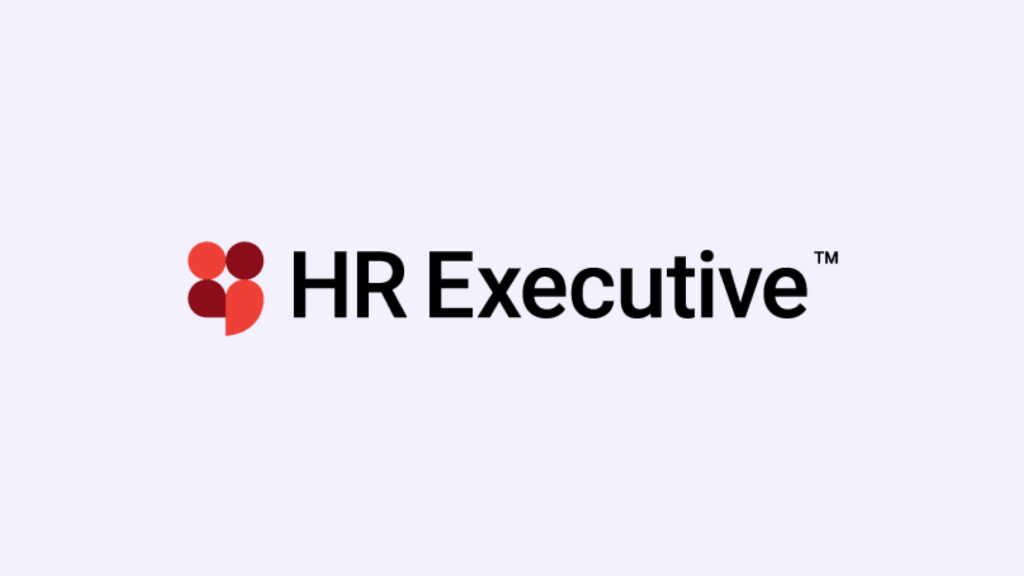

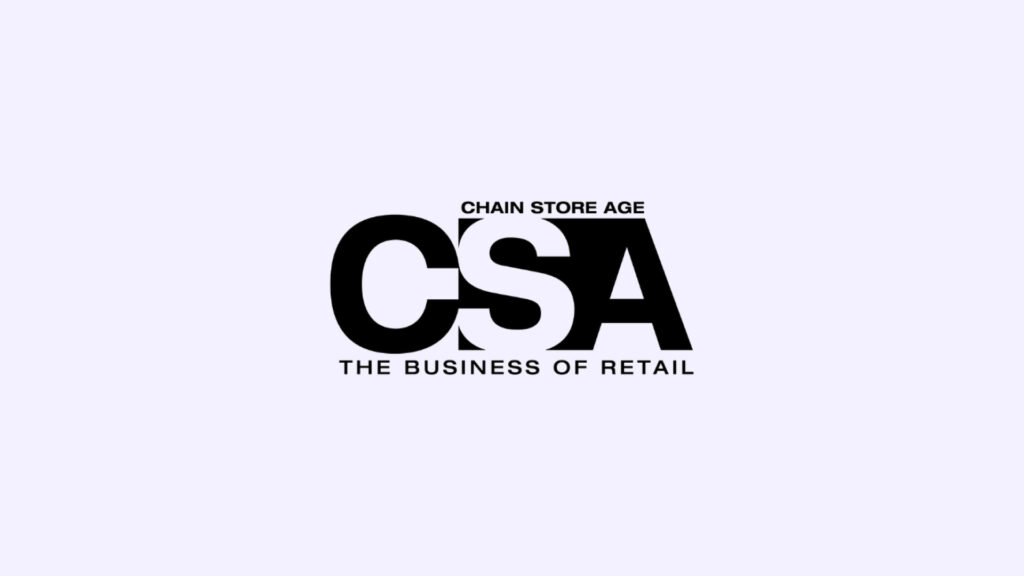
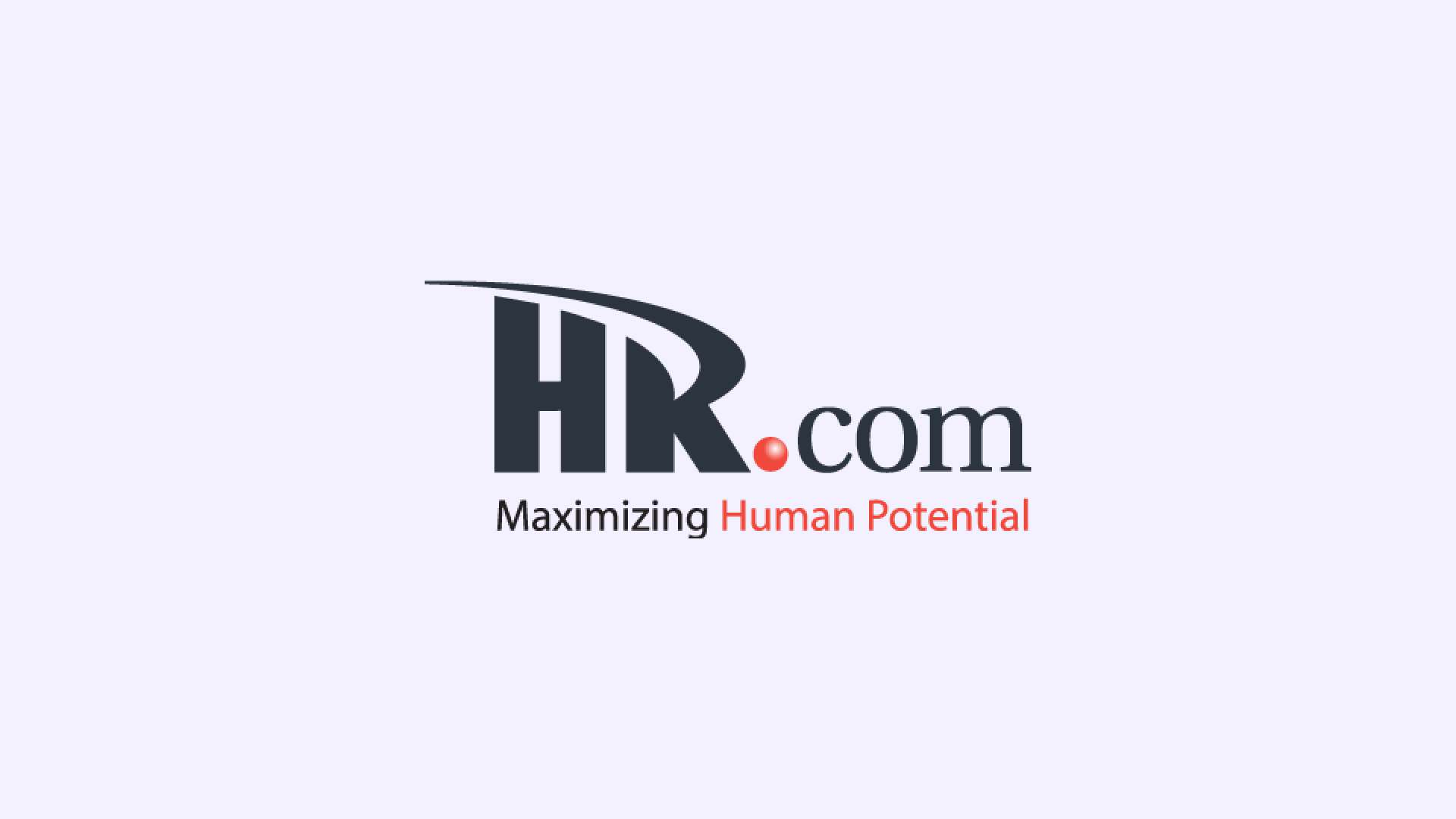
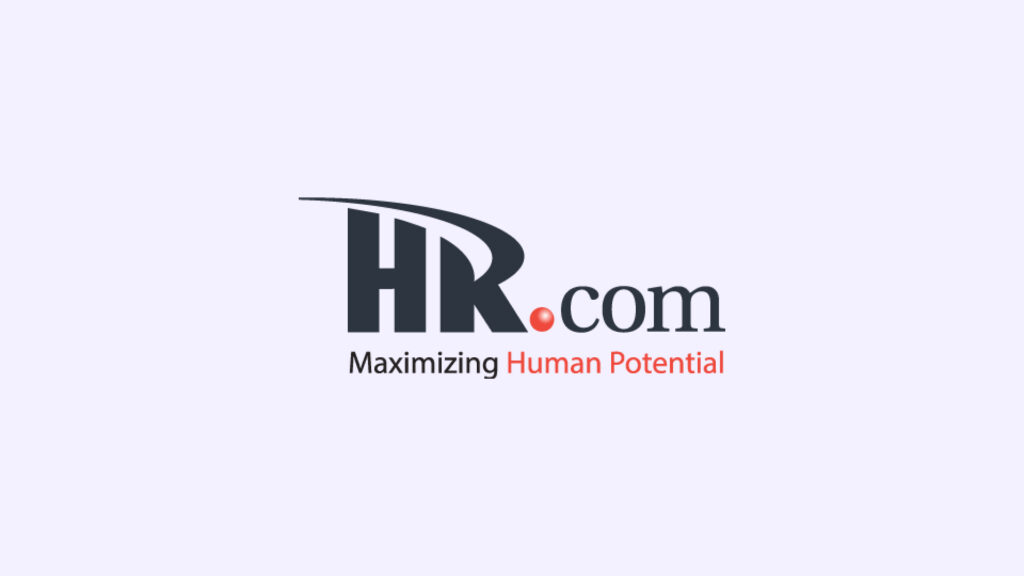

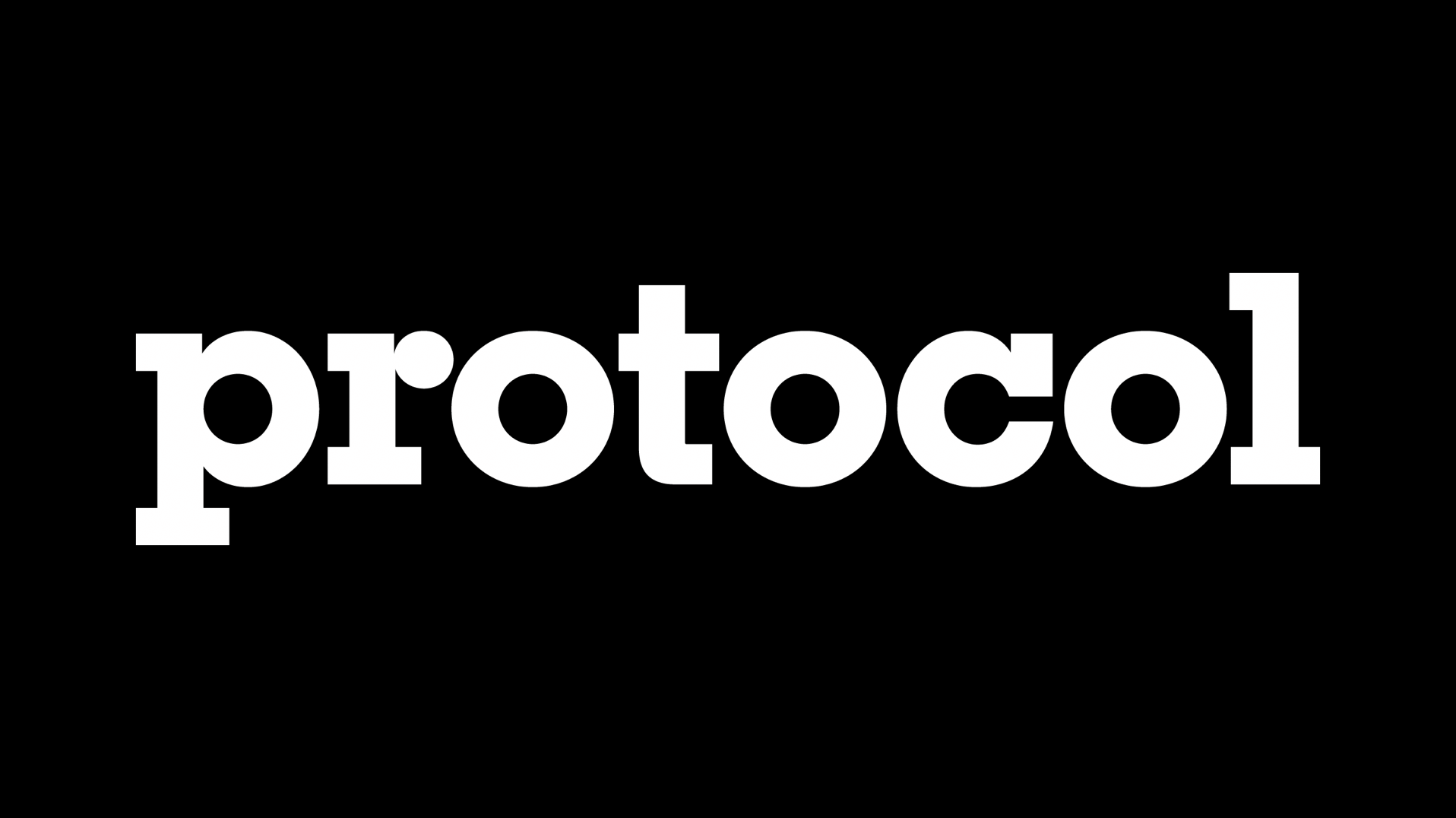
 Ahryun Moon with co-founders Jasper Sone (middle) and Peter Lee at a hackathon in 2014 before they started goodtime.io.Photo: goodtime.io
Ahryun Moon with co-founders Jasper Sone (middle) and Peter Lee at a hackathon in 2014 before they started goodtime.io.Photo: goodtime.io
